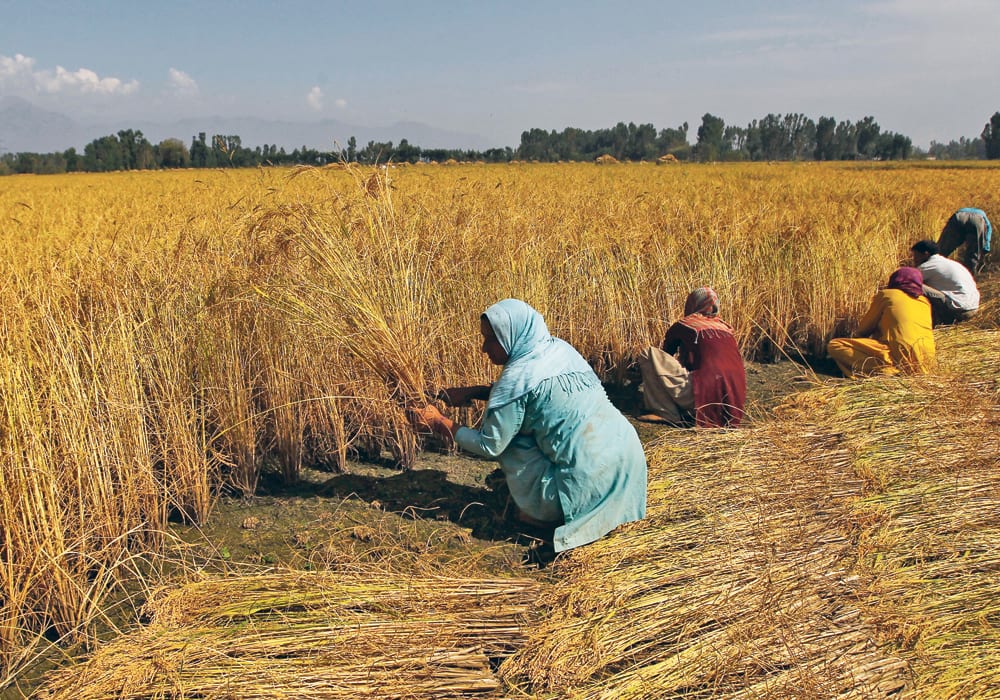There is a crisis brewing in rural India, and that doesn’t bode well for a resumption of pulse trade to that country, says an Indian broker.
Vivek Agrawal, director of JLV Agro, an Indian commodity brokerage firm, said pulse markets have been stagnant and there is a danger of them heading down.
“The fear is that once the government starts selling in the local market, the huge glut in supply will lead to a market crash,” he said in a text message.
Agrawal said the government doesn’t have a choice because it needs to recover the money it paid for its stockpile of pulses and to free up warehouse space for next season.
Read Also

Critical growing season is ahead for soybeans
What the weather turns out to be in the United States is going to have a significant impact on Canadian producers’ prices
He anticipates the government supplies will hit the market after Diwali, a Hindu festival of lights held Nov. 7.
Agrawal said yellow pea prices are the exception. They are still good because the commodity is in short supply but that is driving down demand, which will in turn push down prices.
He believes the government will extend its embargo on yellow pea imports until next March.
Agrawal also believes the government will increase import duties on red lentils or implement quota restrictions on the crop like it has with yellow peas.
The import restrictions are in response to dismal pulse prices, which farm groups blame on the government’s mishandling of its primary farm support program.
CNBC TV18, an English business news channel in India, recently ran a program delving into what it called a rural crisis in the country.
Nine of the 23 crops grown during India’s kharif (summer) season have market prices that are six to 40 percent below the government’s minimum support price (MSP).
The list includes a number of pulses such as pigeon peas, mung beans and black gram, which range from 25 to 32 percent below MSP.
According to CNBC, about half of the kharif crop has already been sold at prices well below the government MSP.
Ajay Vir Jakhar, chair of Bharat Krishak Samaj, which advocates on behalf of Indian farmers, told CNBC that this year’s problem is no different than what has been happening for years.
“The problem has arisen because we continue to import pulses and oilseeds even though production and acreage has increased greatly in India in response to higher prices in earlier years,” he said.
Jakhar said the crisis is the result of the government’s failure to properly implement its MSP policy. He said the policy was botched because it was created by one part of the administration and implemented by another.
“It’s a man-made crisis,” he said.
Jakhar said the government should be buying crops at MSP values and exporting them at a loss just to get rid of the excess supplies in the system.
Avik Saha, national governor of Jai Kisan Andolan, which has been organizing farmer protests across the country, said the government needs to be “the strong man” in the market, ensuring transactions take place at the mandated prices.
“There is no feeling of shame that the orders we pass are not obeyed,” he said.
“In the eyes of the farmers, (MSPs) have come to mean just some announcements, just some grand theatrics and optics and nothing after that.”
Abhijit Sen, economics professor at Jawaharlal Nehru University and former member of the Planning Commission of India, agreed.
“The MSP announcement that upped the MSP massively has done nothing to prices on the ground,” he said.
Sen said better co-ordination is needed between the federal and state governments.
The federal government needs to provide credit for state purchasing agencies to buy the crops, and the state governments need to upgrade their infrastructure.
Siraj Hussain, India’s former secretary of agriculture, said farmer expectations have been raised too high and government solutions are too simplistic.
“It is not possible for any government in any state to buy all the commodities at MSP,” he said.


















